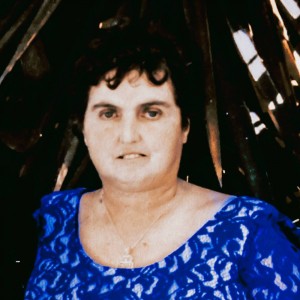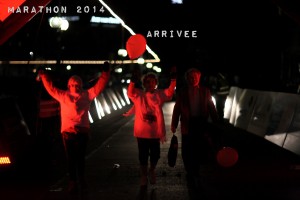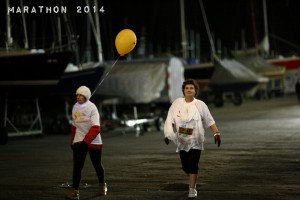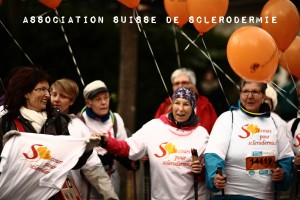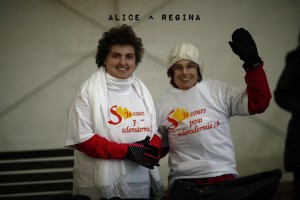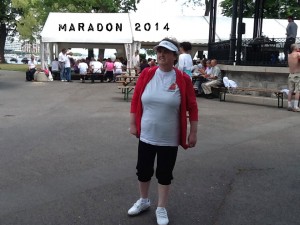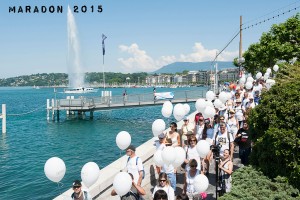Spotlight on the Ssc patient: Alice Martins Correia; Geneva, Switzerland
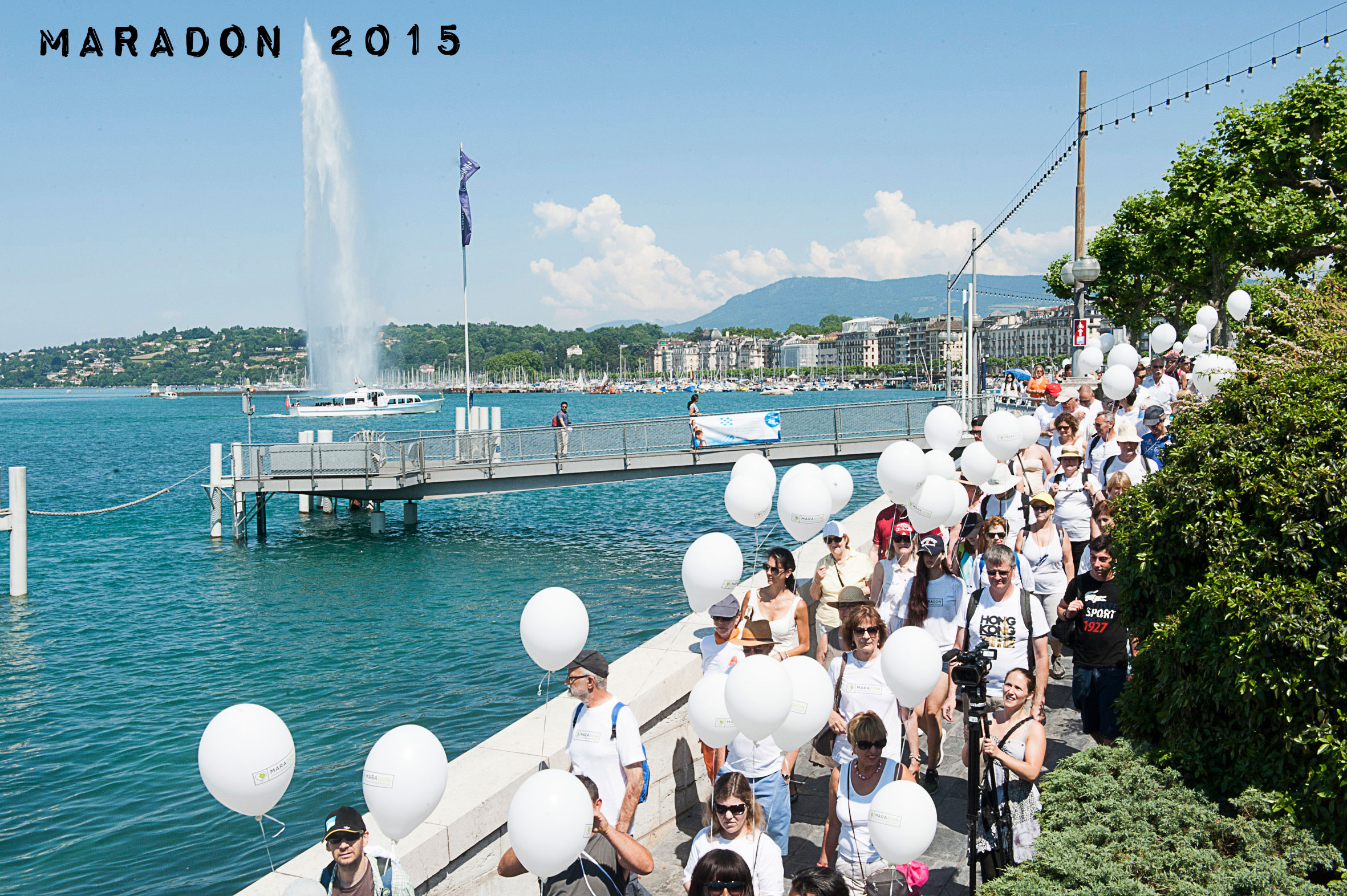
Spotlight on the Ssc patient:
Maria Alice Martins Correia; Geneva, Switzerland
For my blog this week, I would like to introduce Alice to you.
Alice is without doubt, one of the bravest pioneering patients of the global Ssc community, and whose story personalises how devastating and aggressive this diagnosis can be, and, can be, overcome. Alice underwent a double lung transplant in 2012, and has been taking part in marathons since 2014. Warning: prepare to be in awe of Alice:
“My name is Alice, I’m 54 years old and I was born in Portugal but now I live in Geneva. In 2002 I was diagnosed with Diffuse Systemic Sclerosis.
This illness affects the skin, as well as the heart, lungs, gastrointestinal tract, kidneys and muscles. It causes calcinosis, vascular symptoms and circulation problems such as Raynauds Phenomenon.
In my personal case, it affects my skin tissues, joints, esophagus (with reflux) and my lungs with a lung disease called Fibrosing type NSIP. I also had: Positive Antinuclear Antibodies, Positive SCL Antibodies, Positive Anticardiolipin Antibodies, and, Positive Antiphospholipides Antibodies.
Today I will focus specifically about my lungs. Like I said before, scleroderma seriously affected my lungs and because of that, I was taking six doses of Cyclophosphamide between November 2002 and April 2003. After April 2003 I took Aziaztriopine until May 2007.
Since 2007 until now, I have been taking Mycophenolate. But each passing year the infection gradually grew worse. Any strain was unbearable and painful, so much so that I had to leave my job in September 2005.
With the evolution of the disease, doctors began to think about and discuss with me the need to perform a pulmonary transplant in Lausanne. Thus, in November 2011 I was underwent various tests to determine if I could receive a transplant or not. After all these tests, on February 13th 2012 I was officially entered on the waiting list for a double pulmonary transplant.
In fact, I must admit that this waiting period was the most stressful because we had to be available at any time of the day or night. Nevertheless, I’m used to saying that despite my misfortune I’m still lucky, because four months later I was called for the transplant.
At 7 A.M. on the 1st of June 2012, I went to the hospital in Lausanne where coordinators and doctors were waiting for me. The transplant began at 7 P.M. the same day. The days which followed, especially the first month, are confused in my head because of various complications related to bacterial infections, viruses and pneumothorax problems. This was accompanied by heavy medication which caused me to sleep most of the time and put me into a state close to a medically induced coma.
After a month, I was transferred to the hospital in Geneva, where unfortunately I had to stay another three months owing to multiple infections. In the hospital, I was lying on my back all the time due to the drains and because of that, I lost a lot of my muscle mass. I could not walk.
For me, the hardest thing was not the pain or the infections, but the fact that I was no longer independent. During my convalescence I was dependent on the nurses for everything (going to the bathroom, taking a bath, eating- even cutting my meat). By mid-September, though, I was finally out of the hospital, I went home with a walker, a wheelchair and also electrodes for stimulating my muscles. As a joke: I used to call my walker “My Harley Davidson” and my wheelchair “My Mercedes.”
At home, I was helped by a nurse who changed my bandages and gave me medicine. A lady also came to house-work for six months. Although I used the wheelchair until the end of December, in January 2013 I began to recover motricity in my legs despite some muscular weakness. I could walk again.
After my six-month check-up the doctors told me that, for now, there was no sign of rejection and everything was gradually returning to normal. These long months of convalescence now belong to the past. Even though I had these complications this doesn’t mean that it’s the norm.
After all, everyone is different. For example: There are people, who remain only a month in hospital, while others like me must stay longer. But frankly, if I had to redo this operation again, I would do it, because it’s meant a new life for me.
Today life seems much easier, although, I still have scleroderma and I will have to take many drugs for the rest of my life. I can also report that for the moment the results of the tests for the antibodies are all negative. Now I can breathe and walk normally.
In May 2014, two years after the transplant, I completed in two hours the 10km walk of the Geneva Marathon, with my friends from the Swiss Association of Scleroderma. Every year since 2014 I have participated in a 5km Maradon walk to raise awareness about organ donation.
A MEDICAL MIRACLE IN ACTION:
In Conclusion I want to thank:
All my doctors, Professeur Carlo Chizzolini des HUG (Hopiteaux Universitaires de Geneve, and nurses for their professionalism, kindness and humanity; my husband and my son for their love and perseverance; and all my friends for supporting and encouraging me, all the time.
And most importantly I want to thank, with all my heart, the donor and his family for their action and generosity that saved my life.
My motto:
Don’t look life in the long term, Live day by day ~&~ Each passing day is a victory over the disease.”
WOW, a BIG Thank you to Alice for sharing her experience- providing hope to patients, showing that innovative, medical procedures and techniques can provide a possible lifeline, for when the internal organ damage caused by Ssc, has become irreversible and life threatening.
Alice is an inspiration to Ssc patients by not only showing that her body was able accept a donor organ, but also, by showing that her body was able to heal and rebuild her muscles, after months of lying flat due to her life saving operation. However, as Alice pointed out, every Ssc patient is different.
Alice was a presenter at the recent 4th World Systemic Sclerosis Congress held in Portugal. You can watch her here, and thank you to Fesca for making the presentations available:
Alice presenting at the 4th Ssc World Congress 2016
https://www.youtube.com/watch?v=JREOBbejAmY
Alice is an active member of the Swiss patient organisation:
https://www.sclerodermie.ch/index.php?lang=fr
As well as, Alice can be contacted on facebook:
Alice Martins Correia, Geneva, Switzerland




